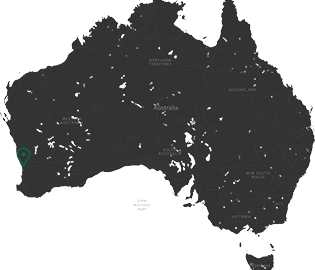| 1. | The advantages of winter |
| 2. | Benefits of buying new |
| 3. | Looking beyond the big four banks |
| 4. | Don’t let your super get away |
| 5. | Economic wrap |
Dear Valued Clients,
Now is the time to review your current borrowings and take advantage of the heavily discounted fixed and variable rates available in the market. Contact us now to review your finances and let us show you how we can save you money.
And in this issue of Mortgage News, we provide you with some important tips if you are currently in the market for a new home or investment property.
Sales activity in the property market varies with the seasons. There are some real opportunities in the winter months for pro-active buyers intent on planting their foot firmly on the Australian property market ladder and now could be the time to make your move and to secure a bargain.
To help maximise your winter potential, we spark up the old debate of new versus old and investigate whether it pays to purchase a new home over an older property.
Both options have their pros and cons and ultimately the decision will rest on how much you can afford to spend and how each property purchase will impact your overall strategy.
But before you step out into the market this winter, you will need to secure the necessary funds to finance your new purchase.
We take a look at why the big banks may not always be your best option and reveal why second tier lenders are proving to be a genuine alternative to the nation’s larger lending institutions.
If you’d like discuss what opportunities await you this winter, or you simply need help with any aspects of your home financing, let’s have a chat today.
Yours Sincerely,
Galvin Dawson
Director
Finance Edge Australia Pty Ltd

Striking while the iron is hot isn’t always the best approach, particularly in the Australian property market…
Even at the best of times, the Australian property market can be a tough nut to crack.
With the traditionally busy spring selling season behind us, and despite parts of the market slowing down, there are real opportunities for pro-active home buyers and property investors.
Both property transaction figures and anecdotal evidence from real estate agents suggest that the winter months are a much quieter time for the property market.
Recent figures released by SQM Research also suggest early signs of market retraction in some areas, with residential listing figures declining 4.2 per cent in April 2012 – and it is likely this trend will continue.*
“It is becoming more evident that the number of real estate listings has reached its peak,” SQM Research’s managing director, Louis Christopher, said. “Indeed, for a number of cities, stock levels are now trending down.”
But for many Australians, a declining property market spells one thing – opportunity!
It’s not hard to see why: fewer buyers means less competition, allowing you a bit more time to pick and choose the property you really want to purchase.
Vendors who are willing to take their chances during the colder months may find themselves increasingly frustrated by softer market performances.
This can be good news for you!
Striking when the market’s not so hot increases the odds of finding a vendor who is willing to shave thousands of dollars off their asking price in order to achieve a sale.
However, if you decide purchasing in winter is your best plan of attack, be sure to sharpen those negotiation skills and boost your buying power with a pre-approved loan.
Pre-approval gives you comfort that, before you have committed to buying a property, the lender will lend you an agreed sum.
Arming yourself with that pre-approved loan is not only a good measure to help you stay within your budget, it will also act as a deal sweetener during the negotiation process.
*SQM Research Stock on Market Figures April 2012, published May 2012

They say there’s nothing quite like the feeling of something new, but does that mean anything when buying a new home?
Whether it’s new clothes, a new car – or maybe even a new house – there is a certain rush that goes with purchasing something new.
Therefore it’s not hard to understand why buying a newly built home or investment property is a popular purchasing choice for many Australians.
One of the most attractive aspects of buying new is that it often requires fewer upfront costs.
Many unforeseen costs – maintenance fees or repair bills, for example – can quickly eat into the money you aim to save by purchasing an existing dwelling.
Moreover, newly built properties traditionally carry a warranty of several years so if you do happen to run into teething issues with your new purchase, the warranty can help.
If you are in the market for an investment property, a new home can certainly be a wise choice.
Not only will the new look and design appeal to potential tenants, contemporary building standards can mean a greener, more sustainable investment.
Also keep in mind that new utilities and appliances, such as bathroom, kitchens and heating can be a huge draw card for tenants and should be considered when you come to negotiate the weekly rent.
Finally, don’t overlook the depreciation and taxation benefits associated with purchasing an investment property as well as the government incentives that can come with purchasing a new home to live in.
Benefits are often at their greatest when a property is brand new.
For example, government bonus schemes such as the NSW First Home / New Home scheme provides eligible purchasers with exemptions from transfer duty on new homes valued up to $500,000 and concessions on transfer duty for new homes valued between $500,000 and $600,000.
New and older properties both have their pros and cons and whether a new property is right for you is ultimately down to your specific situation. If you’re not sure, getting professional advice would be a good next move.
If a new property does fit your financial and investment strategy, however, the benefits should be considerable.
![]()
There are many advantages to buying a new property over an existing dwelling, but as with all property-related decisions, caution is necessary.
To minimise risks, consider the following before making a purchase:
- Capital growth is NOT guaranteed, whether you purchase a new or an older property.
- Research is essential. Be absolutely certain to do your homework on the property market and purchase in an area that is more likely to offer growth potential.
- Know with whom you’re dealing. Unfortunately, there are several stories of developers who go bust during a development or turn out not to be professional operators.Take note of the developer’s history and speak to family and friends regarding developers they have used in the past.

When it comes to financing your home, the local bank is not your only choice
Purchasing a home is the largest single investment most Australians will make during their life.
When in doubt, borrowers often turn to what they know, feeling assured that the major banks are their only or at least their ‘safest’ bet.
There are, however, options outside the ‘big four’ banks, with mortgage managers and originators proving to be a genuine alternative and well worth looking into.
Mortgage managers or mortgage originators, operate similarly to banks except that they specialise in lending.
Mortgage managers are smaller than the big four, but their service levels certainly aren’t; in fact, service is an important reason why you should consider them.
Their smaller size makes it easier for them to offer a higher level and more personal service than many banks.
Turnaround times are another big drawcard for looking beyond the big four banks, with these smaller insitutions often able to act much more quickly to service your financing needs.
![]()
Mortgage brokers are an excellent first point of call when it comes to looking across the full spectrum of home loan products that are available.
Not only can a mortgage broker help you secure the most competitive rates available, they can also help you assess your current financial situation and select a lender and product to meet your individual needs and circumstances.
Here are a few reasons why a mortgage broker could be your best option:
- Secure your loan more easily
- Provide a wide range of options
- Find a product tailored to your personal needs
- Have expertise to help you avoid any pitfalls

Approximately half of all working Australians has some lost superannuation.
According to federal government statistics, this represents approximately 5.8 million currently unclaimed for super accounts, with a total estimated value of $18.8 billion – that’s a lot of people and a substantial amount of money they may not realise they have *.
Moreover, by not reclaiming lost super, you may affect the amount of money available for your retirement.
If you have switched careers, changed your name or moved house in recent years, chances are you have super building up in different funds.
It is easy to lose track or even forget about multiple accounts. Therefore it is handy to have just one combined fund.
If you know where your super is, you can simply apply to have these multiple accounts consolidated into a single fund of your choice.
By doing this, you effectively create a simpler management structure, as well as avoid fees associated with juggling multiple funds.
Tracking down your lost super can take time and money, but luckily there are a number of consolidation services that can help you along the way.
A cost-effective and simple way to locate lost super is available through The Australian Taxation Office. This service, referred to as SuperSeeker, is free to use and available online 24 hours a day, seven days a week.
So, what are you waiting for? Get cracking and track down your lost super today!
* Taxation statistics 2008-09: A summary of tax returns for the 2008-09 income year and other reported tax information for the 2009-10 financial year, published by the Australian Taxation Office, March 2011
![]()
If you are tired of paying excessive fees or are simply unimpressed with your current super fund, there are alternatives available.
The DIY super option allows you to handle and invest your money as you see fit.
Whether you decide to generate wealth through property investment, or place and leave your super in a high interest account, the choice is yours.
Just keep in mind the following principles and rules covering how you invest:
- If you decide property is the way to go, or you want to have a crack at the stock market, choosing where to invest your super should involve taking informed, professional advice.
- Your superannuation is essentially your retirement fund, and should not be taken lightly.
- It is a requirement that any investment decision made must provide revenue for your fund.
Finally, keep in mind that DIY super funds are not the best option for every investor. Having greater control over the distribution of your super can come at a cost if you don’t know what you are doing.
The best way to decide whether a DIY super fund is the best option for you is to get professional advice.

On Tuesday 5 June, the Reserve Bank cut the official cash rate by 25 basis points to 3.50 per cent.
And according to some economists, the good news for home buyers and property investors is that the prospect of higher borrowing costs appears to be off the agenda, for the time being.
The move followed the substantial 0.50 per cent rate cut just one month earlier, in May.
In early autumn, the official cash rate sat at 4.25 per cent – where it had held steady since December 2011.
While some are concerned about the broader global economy, most economists consider that the Australian economy continues to perform well overall.
But challenging credit conditions and weak consumer sentiment are taking their toll.
“With modest domestic growth and a weaker and more uncertain international environment, the outlook for inflation afforded scope for a more accommodative stance of monetary policy,” Reserve Bank Governor Glenn Stevens said, announcing the June rate cut.
The cut came just as Australian shares hit a six-month low, with approximately $23 billion wiped off the share market.
Figures released after the June rate announcement showed Australian GDP growth at a surprisingly resilient 1.3 per cent for the March quarter, which translates to an annual rate of 4.3 per cent.
Despite the stronger than expected results, economists remain cautious about the future.























